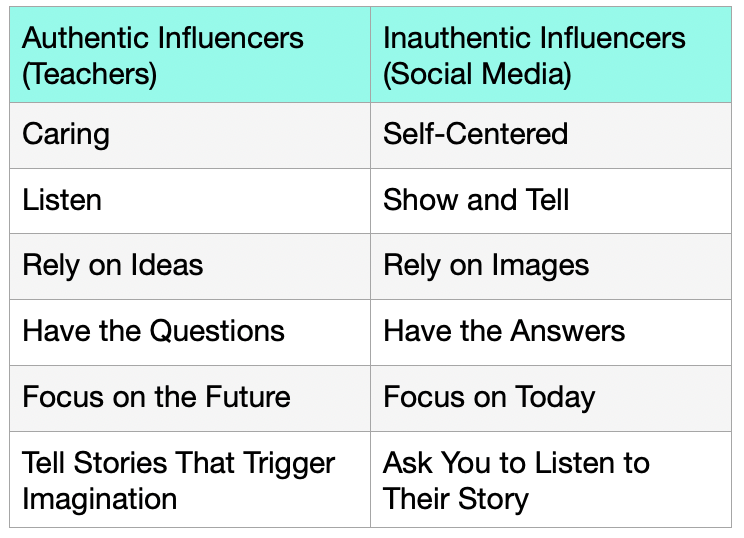“Tell me about your writing experience?” That was the question that was asked of me during a job interview early in my education career. I had been a successful teacher and was considering a job in the private sector. I was confident describing my teaching but stumbled when asked about my writing experiences. As a college graduate, I had completed all of the required essays and papers, and there were some writing expectations as a teacher. However, once confronted by this question during the interview, I recognized that my writing skills were woefully weak. Teachers do a lot of talking but little writing. Later when I entered my graduate program, I made a point of minoring in communications and taking several writing courses. Over the years, I think I have gradually improved my writing skills. The fact that I have published 14 books indicates that I can fashion a few complete sentences and some logical paragraphs.
Writing is a powerful and essential communication skill that is becoming even more challenging when we look at the multiple forms of writing that use technology, including text messaging, emails, tweets, and blogs. Effective educators today must not only have good pedagogical skills but examine their skills in the area of writing. As someone who has engaged in writing for some 50 years, I now recognize that writing is more than just a process of putting words on paper or a computer screen.
Writing, including the process of preparing and revising text, is a powerful thinking process. Writing plays an important role in continually improving individuals in the profession and education as a whole. All educators should be encouraged to write, not simply to have good communication skills and share their ideas, but as a reflective improvement process critical to professional learning. Noted, 20th-century educator John Dewey made a comment, “We do not learn from experience; we learn from reflecting on experience.” As teachers and administrators engage in experiences in their profession, those can become powerful learning experiences by reflecting on those experiences. What better way to reflect on those experiences than through writing? Even if you never published that great novel or completed a dissertation adding writing to your daily responsibilities will help you improve within the profession.
Technology today offers many tools to check spelling and grammar and even artificial intelligence to compose text around your ideas. These tools will help you write well and give instant feedback to learn and improve. Technology also enables us to have multiple forms of writing in simpler ways to publish our work and thereby share the results of our writing. A personal journal is a good form of reflection but doesn’t hold the same accountability because it’s not published. A personal journal reflects on experiences by putting thoughts into words. But writing that involves publishing and sharing those thoughts with others creates greater accountability, heightening the level of reflection.
Educators should consider writing blogs, Twitter, journal articles, book chapters, grant applications, and even graduate degree writing to improve in the profession.
Blogs
Blogs are an incredibly easy way to publish thoughts and share experiences. Blogs are less than 500 words, and there are many opportunities to publish as personal, professional organizations, or school communities with short thoughts and ideas. Try establishing a routine of touching on important topics in a blog format to continually focus on the best practices and reflect on how those might be improved. Podcasts are becoming a more popular narrative form of communicating ideas. The best podcasts have writing behind them with a detailed outline or even a complete written script.
Twitter
Twitter is a short form of blogging. It is an incredibly easy and quick way to publish your thoughts in a tweet. It is considered microblogging because you are limited to 280 characters. This is a real challenge in writing to take and summarize an idea in a short form. You begin to question if this idea is worth sharing and how to. adequately describe it in just a few characters. Maintaining a regular Twitter feed constantly has you thinking about those items of new information that will be valuable to your work and interesting to your followers. Twitter has recently gotten a bad rap in the political realm, where pundits post insults and personal attacks, yet there is much valuable information sharing within Twitter.
Journal Articles and Book Chapters
A well-known expectation of higher education professors is that they must publish their work. These same expectations do not fall upon K-12 educators however, taking advantage of the opportunity to publish an effective practice in one of the many journals as an article is a great experience to reflect on the essence of what makes a practice effective. Thinking through that experience and describing it enables you to reflect on that practice and begin to replicate how those good educational practices might be replicated in other experiences. Look for opportunities to write articles and tackle a book for a chapter in a book. When I started teaching, I had no idea I would ever write a book, but looking back, it was some of my most rewarding educational experiences.
Grant Applications
There are many government and not-for-profits that fund education initiatives. This is a special form of writing targeting the priorities of the funding source. But meeting the challenge of describing your program’s success and focused goals is a powerful reflective experience, even if you don’t receive the funding.
Graduate Degree Writing
Many educators complete graduate degrees for added prestige, opportunities to pursue new positions, or increased salaries. Dissertations often required in these programs require research and scholarly writing. I have enjoyed working with many educators over the last several years in my adjunct teaching at Lynn University. The structure of completing a dissertation is a rich learning opportunity to probe deeply into an issue your feel passionate about. It also provides feedback from other scholars in improving your logical thinking and writing.
In summary, do not consider writing as just a communication process. It is also a process that drives thinking and reflection, which leads to improvement. Taking advantage of opportunities to write helps move you further on a journey of continuing to learn and grow in the profession.




